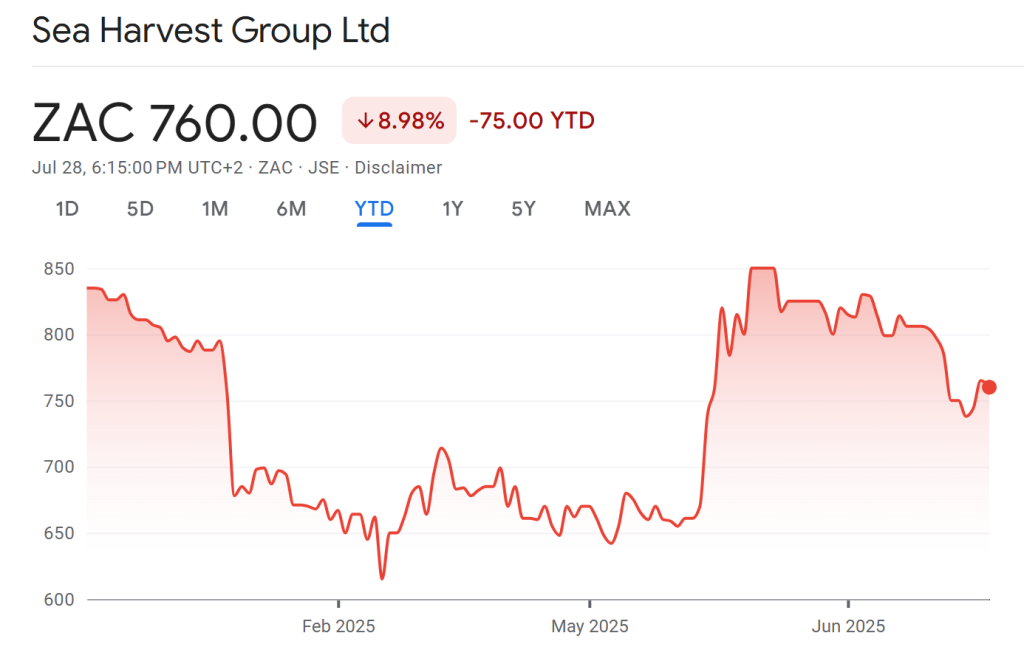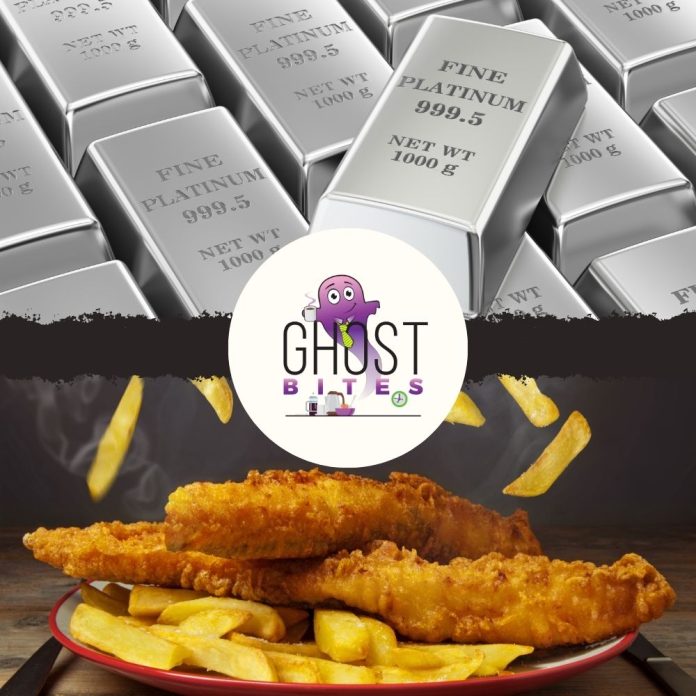Accelerate Property Fund received reasonable support for its rights offer (JSE: APF)
But the underwriters did manage to get their hands on more shares
Accelerate Property Fund has successfully raised R100 million via a rights offer. We knew that the raise would be a success, as it had a committed subscriber in the form of Investec (for R12.4 million) and an underwriter in the form of K2016336084 (South Africa) Proprietary Limited, a name that just rolls off the tongue. More importantly, if you do some research on that name, you’ll eventually find links to iGroup and Castleview Property Fund (JSE: CVW). There’s a lot of will they / won’t they debate in the market about whether Castleview plans to eventually acquire Accelerate or do some other kind of large corporate action. But at this stage, that’s purely speculation.
The results of the rights offer won’t do anything to squash those ideas, as the underwriter picking up shares worth R18.4 million. That’s even more than the committed subscriber! This means that parties other than Investec and K-something (not to be confused with a local musician and foodie) picked up around R69 million in shares.
Now if only Accelerate Property Fund could remove the overhang in its share price from the related party issues…
The Sea Harvest growth is even better than previously indicated (JSE: SHG)
Here’s an example of the words “at least” in a trading statement working out well for shareholders
Sea Harvest published a trading statement at the end of May and then another one towards the end of June. Nobody can accuse them of not keeping shareholders updated with their performance! The more recent trading statement suggested growth in HEPS of at least 60%, so there’s plenty for investors to smile about.
The good news is that yet another updated trading statement reflects growth that is substantially better than that, with expected growth in HEPS of between 88% and 93%! That’s an expected range of 93.4 cents to 95.8 cents. For context, the share price is currently trading at R7.60, with the modest P/E ratio reflecting the volatility inherent in a business model that is essentially primary agriculture.
The jump in earnings is thanks to international sales price increases and strong demand for hake, along with better catch rates and associated efficiency gains. But as we saw in AVI (which owns I&J), the abalone industry is struggling with lower selling prices and soft demand.
This has to be one of the craziest year-to-date share price charts on the JSE:

Spear REIT announced its second acquisition (JSE: SEA)
They’ve been busy!
Spear REIT recently released a cautionary announcement that noted two potential deals. They’ve wasted no time at all in finalising the terms of both of them! The first one was for Consani Industrial Park in Goodwood, with a deal worth R437 million. The second has now been announced, being the acquisition of Maynard Mall in Wynberg for R455 million.
This is a good reminder that although Spear may be focused on the Western Cape, it’s not all glitz and glamour – and nor should it be, as that’s not where the growth is in South Africa. Having once stood in a long queue at Home Affairs at this particular mall, I can tell you that it’s focused on lower income commuter shoppers. This means Shoprite as the anchor tenant and high levels of footfall vs. parking.
They are acquiring the property on a yield of 9.55%, with a weighted average escalation of 6.25% and a weighted average lease duration of 4.75 years. The vacancy rate is just 0.926%. As with the other recently announced acquisition, Spear has identified opportunities for capex investment in coming years, in this case worth R20 million over three to five years.
They are also consistent in their funding strategy, with this deal carrying a loan-to-value ratio of 45% – just like the other deal.
So, this means that Spear (with a market cap of R4.2 billion) has deployed nearly R500 million in equity capital (because the equity portion of the two deals is 55%) on a weighted average net initial yield of 9.6% before we consider funding costs. Spear is trading on a dividend yield of 8%. These seem like decent deals, but stuff like this is already priced into the premium valuation that Spear enjoys, which is why the share price has barely reacted to either deal.
Now here’s the really interesting thing that a little Ghost-Mail-reading bird pointed out to me when the SENS came out: Maynard Mall comes from the Aria Property Group stable, in which Trematon (JSE: TMT) sold its stake in 2024. As at August 2024, Maynard Mall was recognised in the financials of Aria at a fair value of R353.5 million. That’s a tidy profit of R100 million in basically a year, or an uptick of 28%. Either a lot changed in the asset in the past year (unlikely) or the valuation yield moved considerably. I’ll just call it shrewd dealmaking by Aria in the first leg of this trade and leave it at that.
Valterra Platinum looks ahead to a much stronger second half (JSE: VAL)
Can this platinum rally continue?
Valterra Platinum is up 54% year-to-date. That’s wonderful in isolation, but it’s way off the likes of Northam Platinum (JSE: NPH) with a whopping 120% increase, or Impala Platinum (JSE: IMP) up 97%. My Sibanye-Stillwater (JSE: SSW) position takes the cake though, up 160%!
Every dog has its day and the PGM sector is finally that dog. But will that day continue? There’s no easy answer for this obviously. I’ve now trimmed my Sibanye position, with this rally having gotten me out of the red and into a far more palatable situation. In case you’re wondering, I’ve reallocated that capital into Mr Price (JSE: MRP), which strikes me as a retailer that the market has treated very unfairly this year. Time will tell.
Back to Valterra Platinum: why has it underperformed its peers so severely this year? The answer lies in a tough first half, with terribly bad luck from flooding at Amandelbult. At least when the floods happened at Sibanye’s Stillwater mine (those jokes write themselves), it was when the PGM basket price was awful. Poor Valterra suffered the production pressure at exactly the wrong time, although we also shouldn’t be blind to the potential impact that the production pressure has on the price itself. The PGM market is tight and a major drop in production at a large mining house could impact the basket price for everyone.
Own-mined PGM production fell by 12% for the six months to June. Importantly, own-mined production excluding Amandelbult was flat, so that’s encouraging for the second half of the year, as is the news that Amandelbult is producing again and expected to ramp-up to full production in the third quarter.
Refined PGM production (excluding tolling) fell by 22%, with the lower production accompanied by a stock count that happens once in every three years. This led to PGM sales volumes falling by 25% at a most irritating time for investors, as the PGM ZAR basket price was up 3% for the period.
A mitigating factor is the cost saving activities, with cash operating costs per PGM ounce down by 2% if you exclude Amandelbult. Again, Valterra is essentially asking shareholders to look through the noise here and concentrate on the benefits that could come through in the second half.
When you see the bottom of the income statement, you’ll understand exactly why that is so important. EBITDA fell by 46% and HEPS was down by a rather hideous 81% to R4.73 per share. At least they stuck to paying out 40% of HEPS as a dividend, as the balance sheet is in decent shape despite the pressure.
Here’s the key: full-year guidance for production has been maintained, although they do expect to be at the lower end. The same can’t be said for cash operating costs per ounce, which have moved higher to allow for the impact of flooding on the numbers. Helpfully, capital expenditure is expected to be R1 billion below previous guidance.
The company talks about being “well positioned to sustain the track record of industry leading shareholder returns through the cycle” – and if the second half works out as planned, it’s going to be very interesting to see the share price performance over the next few months vs. peers.
Nibbles:
- Director dealings:
- We often see large director dealings (particularly by associates of directors) that are the result of unusual situations – and here’s another one to add to that list. It relates to shares in Premier (JSE: PMR), with Oryx Partners (an associate of chairman Iaan van Heerden) acquiring R68.4 million in shares from Christo Wiese’s Titan Premier Investments. Because of a voting pool arrangement, the voting rights on these shares are ceded to Titan and hence there’s no change to Titan’s voting interests in Premier.
- A director of one of the software subsidiaries of Capital Appreciation (JSE: CTA) sold shares worth R1.8 million.
- Orion Minerals (JSE: ORN) is a junior mining house, so anything they can do to retain cash and pay for things with shares instead is valuable. The latest example is the settlement of director fees worth AUD42.5k through the issuance of shares. And although not specifically linked to director fees, I’ll also mention here that Orion paid for AUD151k in professional fees through the issuance of shares as well.
- The CEO of Vunani (JSE: VUN) has bought more shares in the fund – but this time just R5.6k worth of shares. Liquidity is a real challenge in this thing, with these small trades almost certainly relating more to liqudiity than to the CEO’s desired investment levels.
- The latest update on acceptances by Assura (JSE: AHR) shareholders of the Primary Health Properties (JSE: PHP) offer shows that holders of only 1.21% of shares have accepted the offer. But based on the strong recent results by both companies, the likelihood of this deal going through has increased significantly. The offer is open until 12 August, so there’s a good chance of a flurry of acceptances in coming days. In case you want to do more detailed reading here, a secondary supplementary prospectus with the latest financial information has been released.
- Vukile Property Fund (JSE: VKE) is just going from strength to strength. The latest example of positive momentum at the company is an upgrade of its credit rating by Global Credit Ratings (GCR) to AA+(za) (previously AA(za)), with the short-term rating affirmed at A1+(za) with a stable outlook. Essentially, this supports even more competitive borrowing costs over time as Vukile taps the bond market for debt capital, a key source of funding for property companies. And if debt becomes cheaper, then there’s more leftover at the end of the day for equity investors.
- Here’s an interesting one: a global credit and special situations hedge fund named Silverpoint Capital now has an 8.5% stake in Pepkor (JSE: PPH). I’m almost 100% share that this stake is linked to legacy Steinhoff holdings.





While on platinum any thoughts on Sedibelo platinum rights issue?
Hi Alan – I’m afraid that company is way outside my circle of competence in terms of having any kind of useful view.